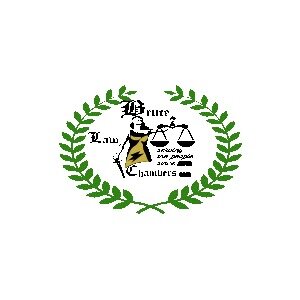Best Bankruptcy Lawyers in Saint Vincent and the Grenadines
Share your needs with us, get contacted by law firms.
Free. Takes 2 min.
Or refine your search by selecting a city:
List of the best lawyers in Saint Vincent and the Grenadines
About Bankruptcy Law in Saint Vincent and the Grenadines:
In Saint Vincent and the Grenadines, bankruptcy is a legal process that allows individuals or businesses to eliminate or repay their debts under the protection of the court. The primary legislation governing bankruptcy in Saint Vincent and the Grenadines is the Bankruptcy and Insolvency Act.
Why You May Need a Lawyer:
You may need a lawyer for bankruptcy in Saint Vincent and the Grenadines if you are facing financial difficulties and are considering filing for bankruptcy. A lawyer can help you navigate the complex legal system, understand your rights and obligations, and ensure that your interests are protected throughout the bankruptcy process.
Local Laws Overview:
Some key aspects of local laws relevant to bankruptcy in Saint Vincent and the Grenadines include the eligibility criteria for filing bankruptcy, the different types of bankruptcy options available, the process of filing for bankruptcy, and the consequences of bankruptcy on your assets and credit.
Frequently Asked Questions:
1. What is the difference between Chapter 7 and Chapter 13 bankruptcy?
In Saint Vincent and the Grenadines, Chapter 7 bankruptcy involves liquidating your assets to repay your debts, while Chapter 13 bankruptcy involves creating a repayment plan to pay off your debts over time.
2. What debts can be discharged in bankruptcy?
Generally, unsecured debts such as credit card debt, medical bills, and personal loans can be discharged in bankruptcy, while secured debts such as mortgages and car loans may not be eligible for discharge.
3. How long does bankruptcy stay on my credit report?
Bankruptcy can stay on your credit report for up to seven to ten years, depending on the type of bankruptcy filed.
4. Can I keep my house and car if I file for bankruptcy?
It depends on the type of bankruptcy you file and the equity in your house and car. In some cases, you may be able to keep your house and car by continuing to make payments.
5. Will I lose all my possessions if I file for bankruptcy?
Not necessarily. Some possessions may be exempt from bankruptcy proceedings, such as basic household items, clothing, and tools of the trade.
6. Can I file for bankruptcy on my own?
While it is possible to file for bankruptcy without a lawyer, it is highly recommended to seek legal advice to ensure that your rights are protected and to navigate the complex legal system effectively.
7. How much does it cost to file for bankruptcy in Saint Vincent and the Grenadines?
The cost of filing for bankruptcy in Saint Vincent and the Grenadines can vary, including court fees, legal fees, and other associated costs. It is essential to consult with a lawyer to understand the total cost involved.
8. Can creditors continue to harass me after I file for bankruptcy?
Once you file for bankruptcy, an automatic stay is put in place, preventing creditors from taking further collection actions against you. However, it is essential to inform your creditors about the bankruptcy filing to ensure compliance with the law.
9. Will I be able to obtain credit after filing for bankruptcy?
Although filing for bankruptcy can impact your credit score and ability to obtain credit in the short term, it is possible to rebuild your credit over time through responsible financial practices.
10. Can student loans be discharged in bankruptcy?
Student loans are generally not dischargeable in bankruptcy unless you can demonstrate undue hardship. It is recommended to consult with a lawyer to explore your options concerning student loan debt.
Additional Resources:
For more information on bankruptcy in Saint Vincent and the Grenadines, you can contact the Eastern Caribbean Supreme Court or seek assistance from the Saint Vincent and the Grenadines Bar Association.
Next Steps:
If you are considering filing for bankruptcy or have questions about bankruptcy in Saint Vincent and the Grenadines, it is advisable to consult with a qualified bankruptcy lawyer who can provide you with legal advice tailored to your specific situation. A lawyer can help you understand your rights, assess your financial situation, and guide you through the bankruptcy process. Remember that seeking legal advice early on can help you make informed decisions and protect your interests during this challenging time.
Lawzana helps you find the best lawyers and law firms in Saint Vincent and the Grenadines through a curated and pre-screened list of qualified legal professionals. Our platform offers rankings and detailed profiles of attorneys and law firms, allowing you to compare based on practice areas, including Bankruptcy, experience, and client feedback.
Each profile includes a description of the firm's areas of practice, client reviews, team members and partners, year of establishment, spoken languages, office locations, contact information, social media presence, and any published articles or resources. Most firms on our platform speak English and are experienced in both local and international legal matters.
Get a quote from top-rated law firms in Saint Vincent and the Grenadines — quickly, securely, and without unnecessary hassle.
Disclaimer:
The information provided on this page is for general informational purposes only and does not constitute legal advice. While we strive to ensure the accuracy and relevance of the content, legal information may change over time, and interpretations of the law can vary. You should always consult with a qualified legal professional for advice specific to your situation.
We disclaim all liability for actions taken or not taken based on the content of this page. If you believe any information is incorrect or outdated, please contact us, and we will review and update it where appropriate.
Browse bankruptcy law firms by city in Saint Vincent and the Grenadines
Refine your search by selecting a city.








